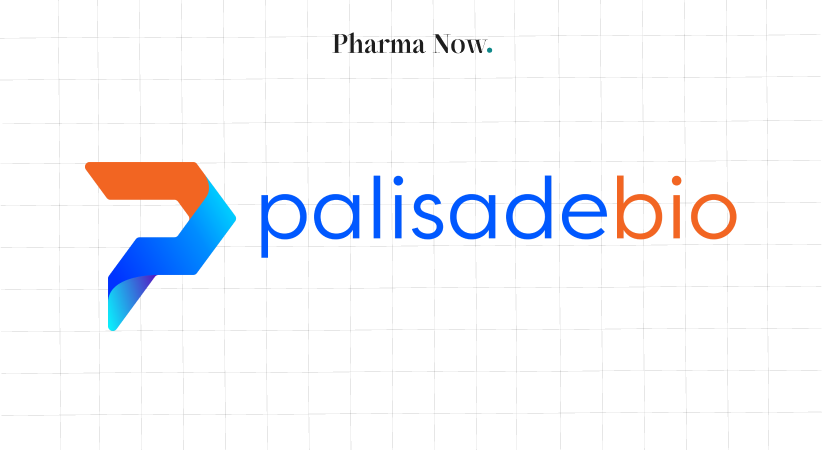Palisade Bio Highlights Positive Data From PALI-2108 Phase 1b Clinical Evaluation
Palisade Bio reports strong Phase 1b data for PALI-2108 in ulcerative colitis, showing rapid response and anti-fibrotic potential.
Breaking News
Sep 18, 2025
Simantini Singh Deo

Palisade Bio, Inc., a clinical-stage biopharmaceutical company developing precision therapies for autoimmune, inflammatory, and fibrotic diseases, has announced new clinical data from its ongoing program evaluating PALI-2108. The findings will be presented in an oral session at the STAR Consortium Annual Meeting, and the accompanying presentation slides have been made available in advance.
PALI-2108 is a first-in-class, ileocolonic-targeted PDE4 B/D inhibitor being studied for its potential to treat ulcerative colitis (UC) and fibrotic strictures in Crohn’s disease (FSCD). In the Phase 1b UC cohort, the therapy demonstrated rapid and consistent clinical activity, with all five patients responding to treatment after just seven days. Although the study was shorter in duration than standard induction trials and not powered for efficacy, two of the five patients achieved clinical remission within a week.
These improvements were supported by favorable histology and biomarker changes, which confirmed local PDE4 engagement and broad immunologic resolution. Combined with the strong safety and pharmacokinetics data observed in the earlier Phase 1a study, these results highlight the potential of PALI-2108 to act as both an anti-inflammatory and anti-fibrotic therapy.
JD Finley, Chief Executive Officer of Palisade Bio, said the results demonstrate PALI-2108’s differentiated profile, noting its strong safety, rapid clinical activity, and broad biomarker engagement in ulcerative colitis. He added that the findings also reinforce the drug’s potential as the first targeted anti-fibrotic therapy for Crohn’s strictures. Finley emphasized that the company is excited to advance the program into Phase 2 development.
In the Phase 1a safety and pharmacokinetics study involving 84 participants, no serious adverse events or lab or EKG abnormalities were observed. The drug was well tolerated at single doses up to 450 mg and multiple twice-daily doses up to 50 mg. PALI-2108 also showed an extended half-life and colon-targeted bioactivation, supporting once-daily dosing. In the Phase 1b ulcerative colitis cohort, all five patients showed a clinical response based on the modified Mayo score, with a mean reduction of 62.8 percent (approximately a four-point absolute decrease).
Two patients achieved remission according to FDA-defined endpoints. Histologic improvements were observed across several measures, including a 58 percent improvement in the Nancy Index, a 56 percent improvement in the Robarts Index, and a 36 percent improvement in the Geboes Score. Reductions in inflammatory biomarkers were also recorded, including approximately 70 percent for fecal calprotectin and 15 percent for hsCRP. Mechanistic biomarkers showed significant improvements, including a 27 percent increase in colon tissue cAMP, a 29 percent reduction in tissue lymphocytes, and a 71 percent decrease in tissue PDE4B.
The study also demonstrated translational relevance to FSCD, with 186 fibrotic gene markers elevated at baseline in UC patients reduced by the end of treatment. This supports the potential anti-fibrotic effects of PALI-2108 in treating Crohn’s strictures. Mitchell Jones, M.D., Ph.D., Chief Medical Officer of Palisade Bio, noted the consistency across clinical, histologic, and mechanistic readouts in UC, emphasizing that the rapid clinical responses and biomarker improvements confirm PALI-2108’s targeted engagement of PDE4 biology.
He said these findings reinforce the therapy’s potential to become a best-in-class oral treatment for ulcerative colitis and suggest broader opportunities for its use in FSCD. By prioritizing UC as the lead indication, the company is following a clear regulatory and clinical path while maintaining the flexibility to expand the program.
Palisade Bio has stated that data from its upcoming Phase 1b FSCD study, together with results from its completed Phase 1a and 1b UC trials, will form the basis for its planned Phase 2 Investigational New Drug (IND) submissions to the U.S. Food and Drug Administration in the first half of 2026. Additional details about the Phase 1a/b study can be found on clinicaltrials.gov under identifier NCT06663605.
